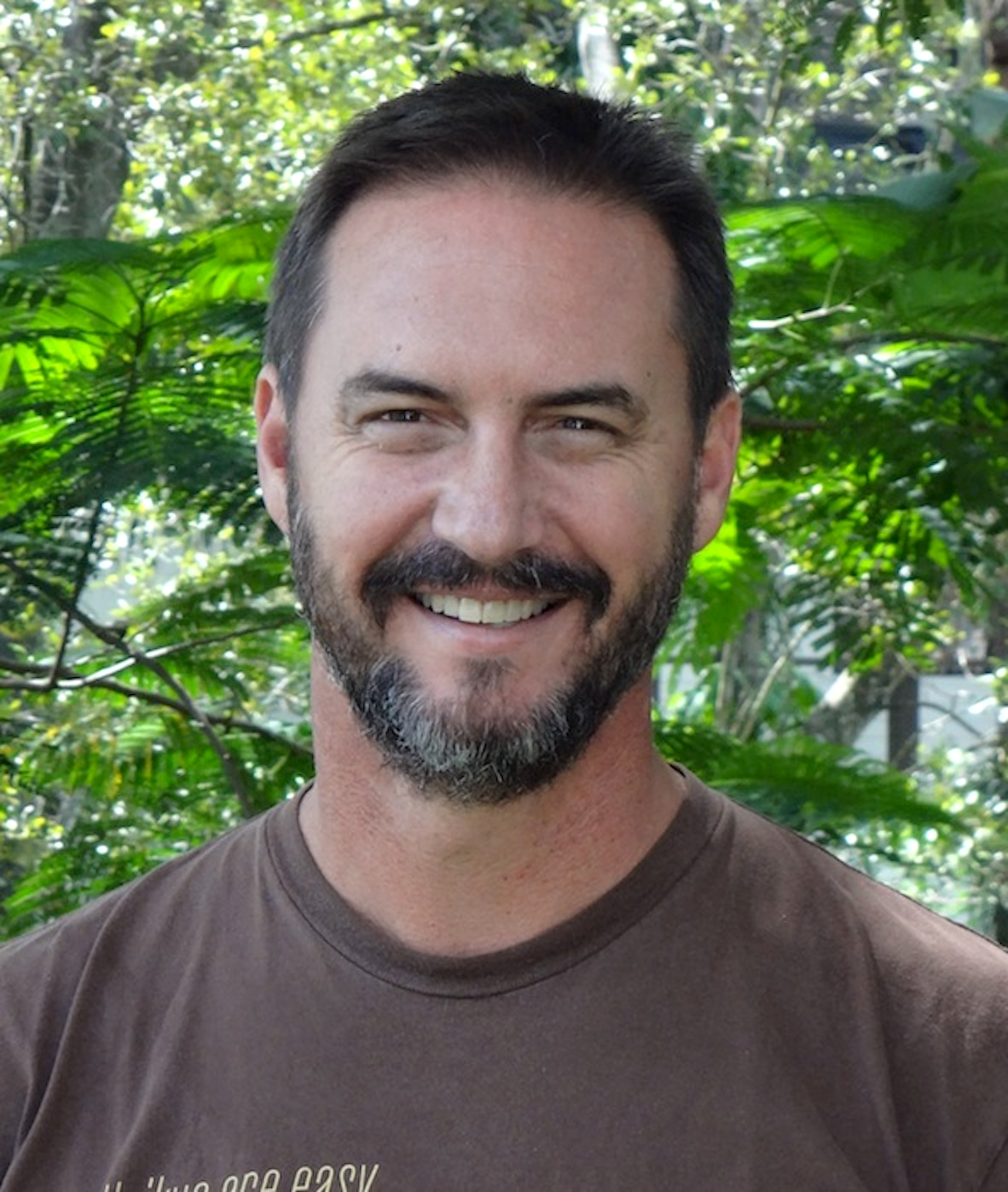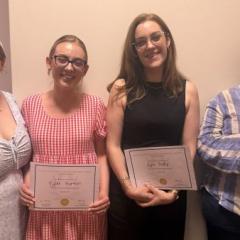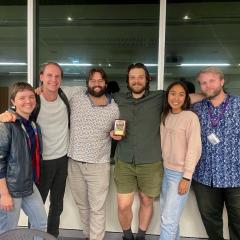Congratulations to Peter Ellerton with Dr Kathleen Smith, Professor Amanda Berry, Dr Jennifer Mansfield, Professor Deborah Corrigan, Associate Professor Nicoleta Maynard from Monash University, Ms Shelley Waldon from Catholic Education Melbourne and Mr Doug Partner Ashleigh from Brisbane Catholic Education for his success in obtaining a highly competitive ARC Linkage grant for a project on 'Exploring Problem Based Learning in Schools'.
Professor Nicoleta Maynard from Monash University, Ms Shelley Waldon from Catholic Education Melbourne and Mr Doug Partner Ashleigh from Brisbane Catholic Education for his success in obtaining a highly competitive ARC Linkage grant for a project on 'Exploring Problem Based Learning in Schools'.
This project seeks to address the National STEM Strategy Report recommendation that Australian education systems provide all Australians with the capacity and confidence to make informed choices on complex matters where STEM offers options. Enhancing STEM literacy is essential as this is increasingly part of the core capabilities that Australian employers need. School based STEM education must enable students to identify, apply, and integrate concepts from STEM areas to understand complex problems and to innovate to solve them. Problem Based Learning, as evident in tertiary education, offers a potential approach to achieving such outcomes. By exploring how to best support teachers to use this approach in school based settings, this work potentially contributes to social development by advancing the personal growth and development of each student. The project also contributes to overall future national economic growth by developing a culture of innovation and productivity regardless of gender, occupation or industry.
Aims and Background
Building capacity in Science, Technology, Engineering and Mathematics (STEM) across the population is critical in supporting a culture of innovation and productivity regardless of gender, occupation or industry (Australia’s National Science Statement, 2017; Peters-Burton, Moore & Johnson, 2016; Marginson, Tytler, Freeman & Roberts, 2013). Consistent with this research, industry surveys show STEM literacy, that is, the ability to identify, apply, and integrate concepts from STEM areas to understand complex problems and to innovate to solve them, is increasingly part of the core capabilities that Australian employers need (PWC, 2015; Deloitte, 2015). Yet, set against this demand for a strong STEM future, “there is evidence that [Australian school] education systems are not up to the challenge” (Timms, Moyle, Weldon, Mitchell, 2018, p. 1). Teachers are the critical link in addressing this challenge in two distinct ways:
1. building teacher knowledge, skills and confidence in STEM teaching and learning, and
2. implementing useful models of STEM Education that focus on the pedagogical practices that underpin STEM as an integrated, cohesive and meaningful approach to learning, something that is missing in the current
educational landscape.
In this ARC Linkage Project, Catholic Education Melbourne (CEM), Brisbane Catholic Education (BCE), and Chief Investigators from Monash University and Queensland University (UQ) explore the development of Problem Based Learning as a way to enhance Australian school-based STEM education. This research project aims to:
1. Generate research-informed principles of practice for a Problem Based Learning (PBL) model of STEM Education;
2. Embed the principles of practice for a PBL model of STEM Education into a coherent and sustainable pedagogical framework informing school-based STEM education;
3. Actively position teachers as key decision makers about how to use this pedagogical framework so that they build the professional knowledge, capacity and confidence needed to design and implement authentic and relevant STEM education consistent with the principles of a PBL model of STEM Education;
4. Produce evidence-informed exemplars of powerful school-based PBL practice in STEM education (Years 6 -10) which develop a common teacher professional language and shared understanding about PBL. The website produced though this project will provide exemplars to educators, curriculum designers and professional learning providers across Australia. International dissemination of the work will be achieved through presentations at overseas conferences and utilising the existing professional networks of the CIs, as evident in the work of CI Berry who has extensive international connections.



